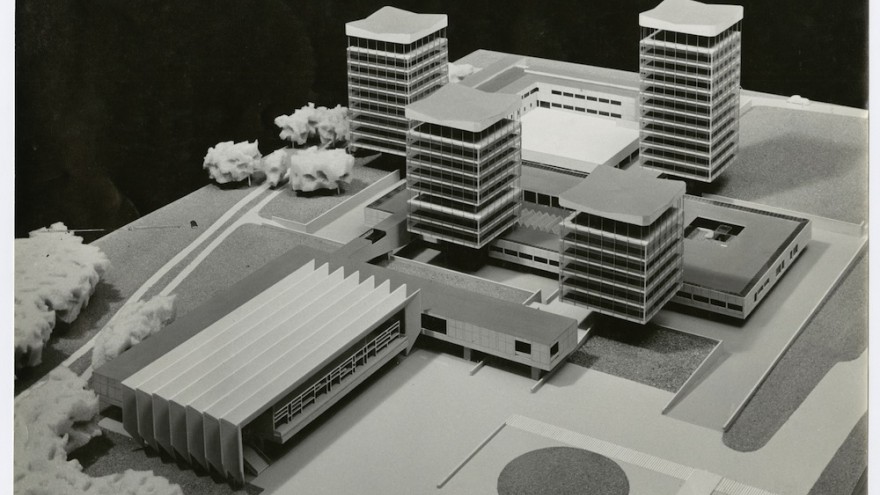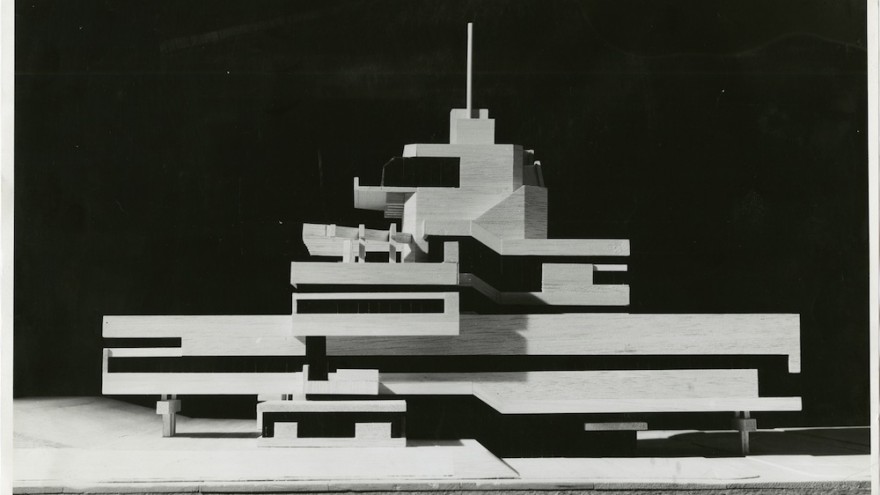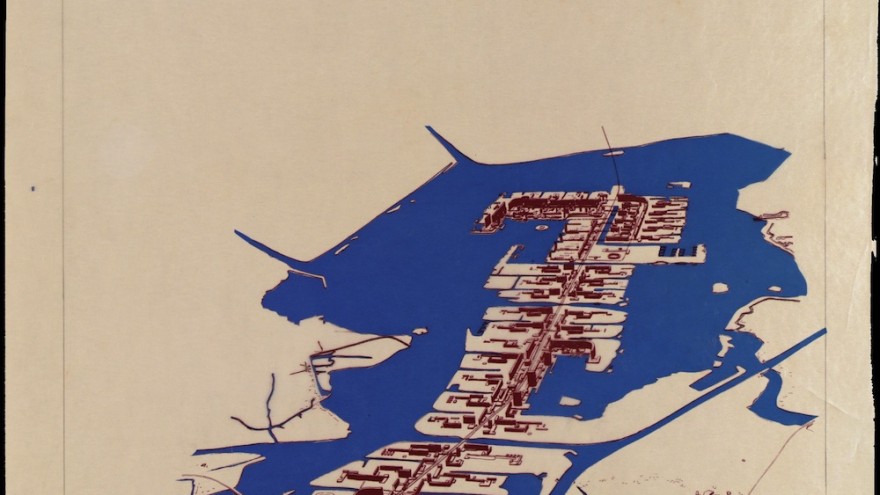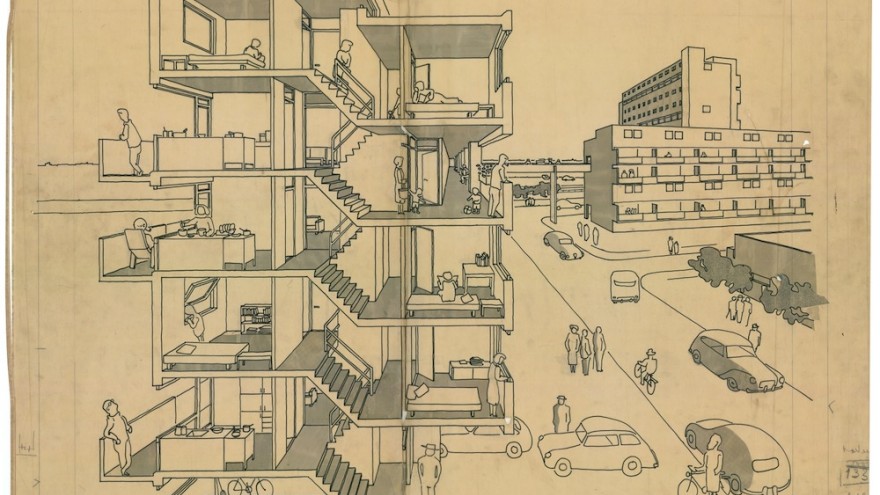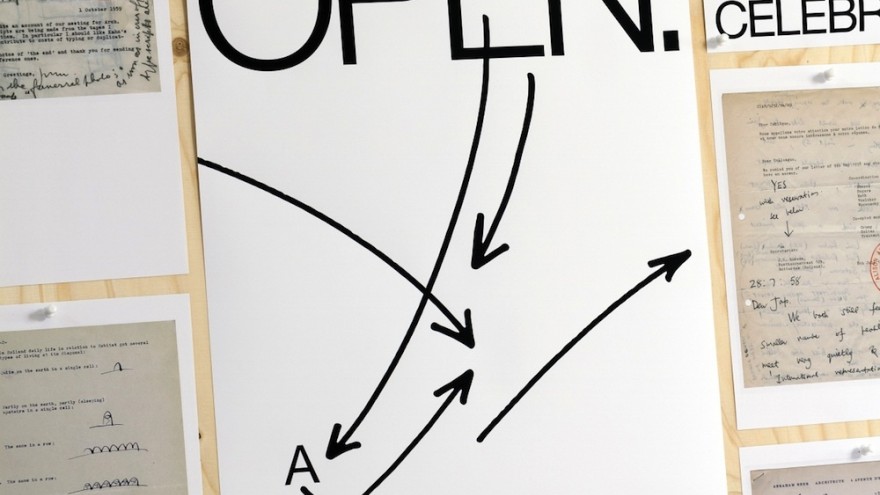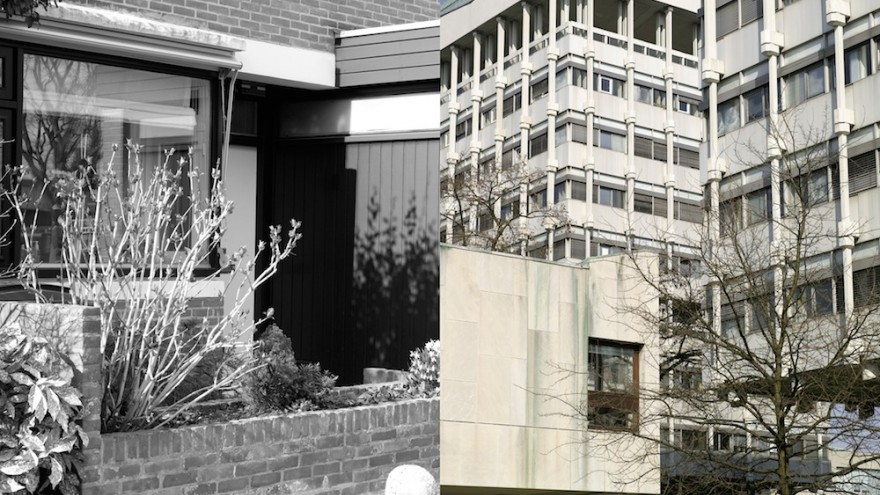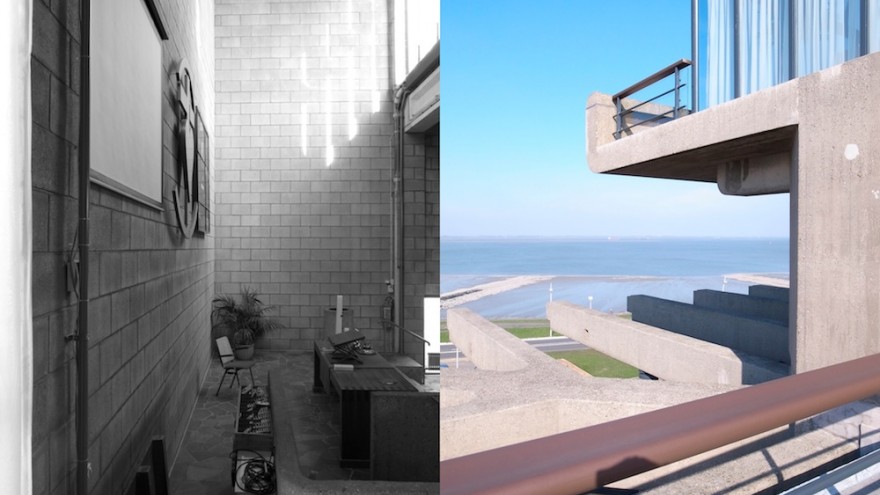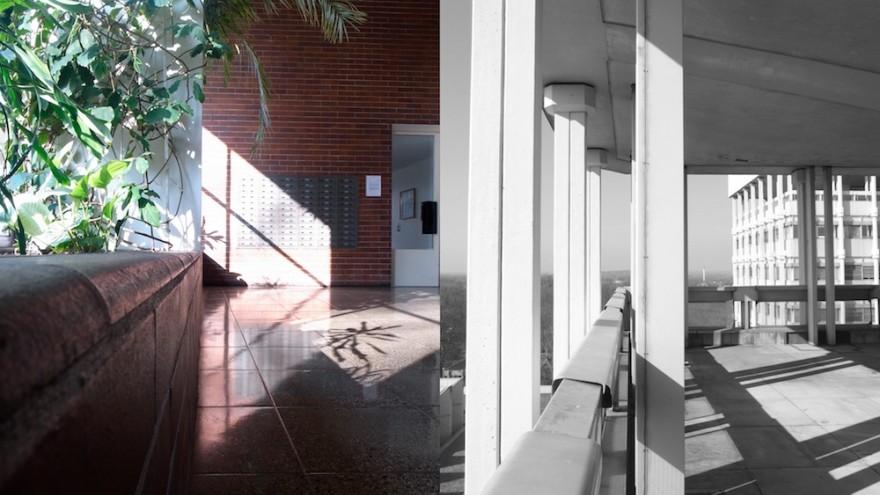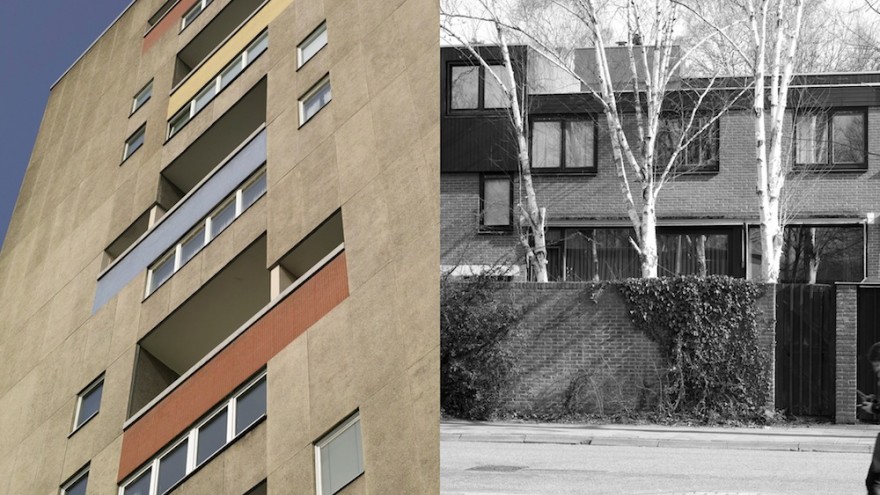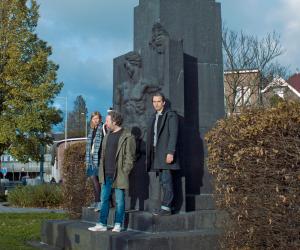Experimental Jetset, the Amsterdam-based graphic design studio, has recreated an almost life-size fragment of De Lijnbaan, the iconic modernist street in Rotterdam designed by architects Van den Broek en Bakema in the early 1950s, for the Dutch pavilion at the 2014 Venice Architecture Biennale. The studio designed the exhibition, Open: A Bakema Celebration, which critically addresses the idea of the open society through the work of Jaap Bakema (1914–1981).
Bakema, a leading voice in the post-war avant-garde of 20th-century architecture, aimed to build a new, open society that was democratic, egalitarian and all-inclusive. He believed architecture should accommodate the emancipation of the masses while allowing for the self-realisation of the individual citizen. Open: A Bakema Celebration explores the relevance of such idealism for today.
But rather than a realistic representation, Experimental Jetset chose to deconstruct the notion of De Lijnbaan, translating it into a series of abstract structures, gradually dissolving into its bare elements. Using these imploded, deconstructed wooden structures as display cases, the life and work of Bakema is depicted through a large number of overlapping prints and posters, creating three-dimensional collages. Original scale models and TV-monitors showing historical footage are embedded in the collages.
Experimental Jetset recreated some typical Lijnbaan street furniture (kiosks, vitrines and benches) as abstract representations of Bakema-designed buildings.
The installation also includes a photo essay by the German-born, Amsterdam-based artist Johannes Schwartz, exploring the current state of Bakema-related buildings, through a series of mimeographed split-screen images.
The exhibition was commissioned by Het Nieuwe Instituut and curated by its director, Guus Beumer, and Dirk van den Heuvel, director of the Jaap Bakema Study Centre.
Open: A Bakema Celebration can be viewed at the Venice Architecture Biennale until 23 November, 2014.

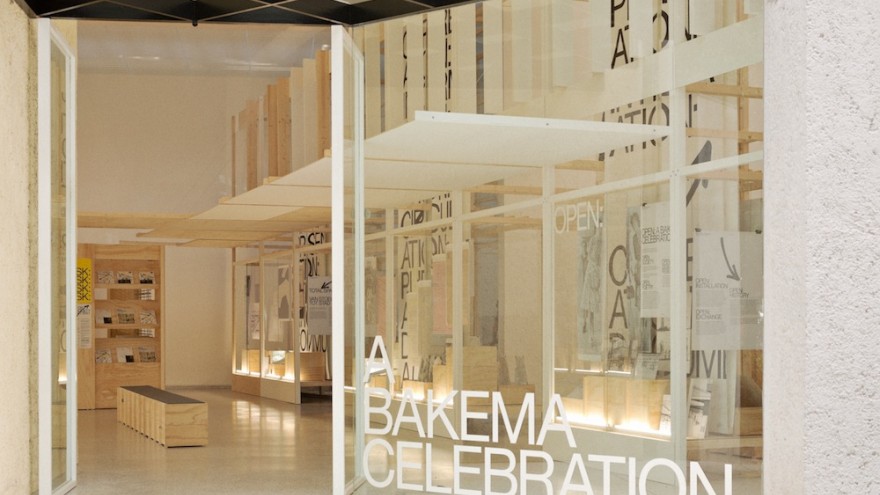
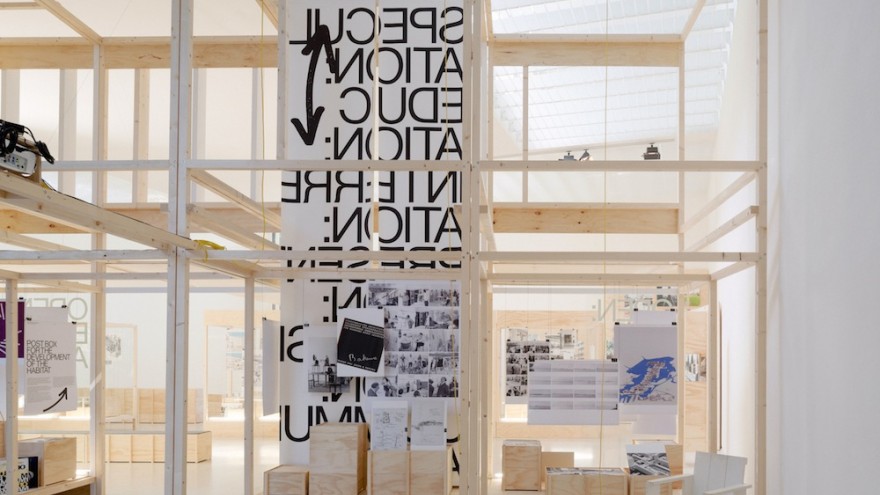
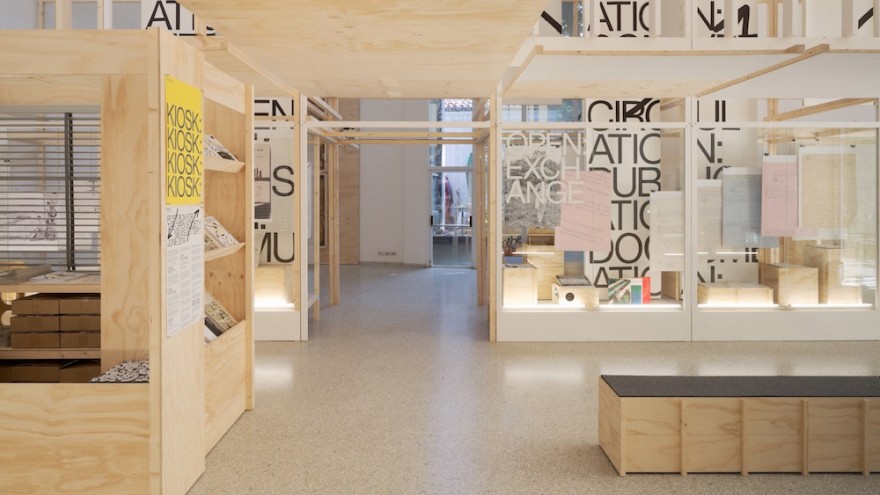
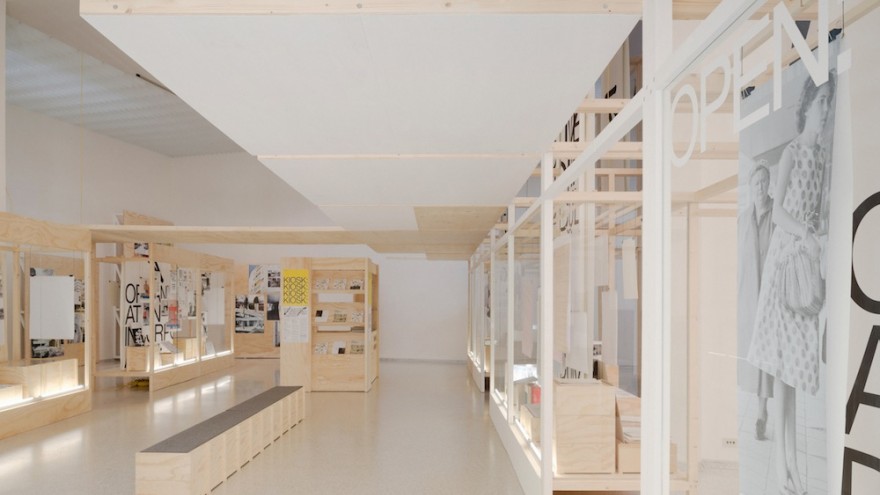
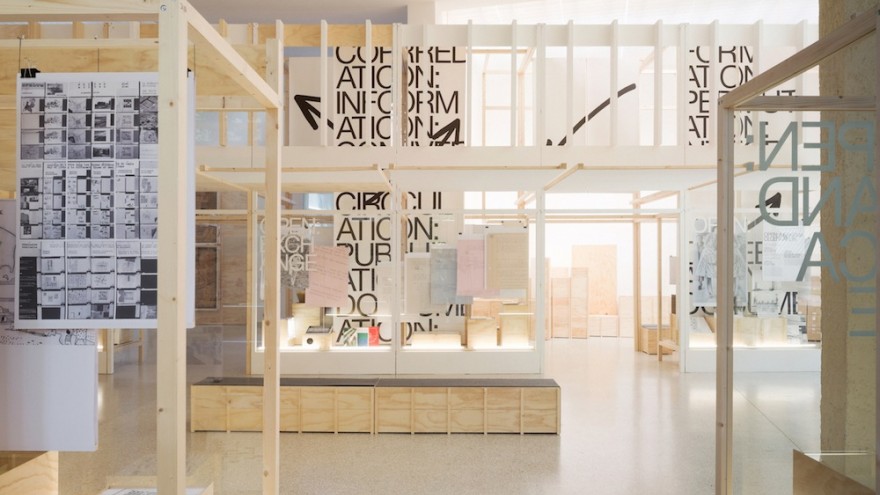
![Page from the manuscript Van Stoel tot Stad, een verhaal over mensen en ruimte [From Chair to City. A tale of people and space], Jaap Bakema, 1963, collection Het Nieuwe Instituut, BAKE d276 Page from the manuscript Van Stoel tot Stad, een verhaal over mensen en ruimte [From Chair to City. A tale of people and space], Jaap Bakema, 1963, collection Het Nieuwe Instituut, BAKE d276](http://www.designindaba.com/sites/default/files/styles/large/public/node/news/18705/gallery/5page-manuscript-van-stoel-tot-stadbaked276jaapbakema1800px.jpg?itok=eTsDU961)
